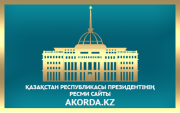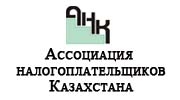
STATE REVENUE COMMITTEE
OF THE MINISTRY OF FINANCE OF THE REPUBLIC OF KAZAKHSTAN
Press Release
From January 1, 2019, the Law that provides for granting of a tax amnesty for small and medium-sized businesses entered into force
In the Message to the People of Kazakhstan dated October 5, 2018 “Growth of Kazakhstan’s Welfare: Increasing Income and Living Standards” the Head of State instructed to grant a tax amnesty for small and medium-sized businesses starting from January 1, 2019 by writing off penalties and fines, subject to the payment of the principal amount of the tax.
In the history of Kazakhstan as a sovereign state, tax amnesties for writing off penalties and fines to improve the financial and economic activities of enterprises were granted three times (in 1997-1999, in 2011 and 2015), each time providing an opportunity for business entities to get rid of accumulated debts and continue their legitimate commercial activities.
Within the last two operations (2011 and 2015), the debts on penalties and fines totaling 143.7 billion tenge, including in 2011 - 23.1 billion tenge, in 2015 - 120.6 billion tenge were written off.
The amnesty extended to all taxpayers, except for those operating in industries with a traditionally high rate of return, potentially having the ability to pay taxes in a timely manner.
These actions have had a positive effect: 67% of the participants of the latest tax amnesty of 2015 today do not have tax debts.
These are more than 680 thousand taxpayers, of which over 17 thousand are legal entities, 105 thousand - individual entrepreneurs, 557 thousand - individuals, i.e, general population.
The rules of tax amnesty, granted in 2019, are established by the Law of the Republic of Kazakhstan “On Amendments and Additions to Certain Legislative Acts of the Republic of Kazakhstan on the Administrative-Territorial Structure of the Republic of Kazakhstan and Counteracting the Shadow Economy”, signed by the Head of State on December 28, 2018 No. 210-VI, which makes additions to the Law of the RK “On the introduction of the Code of the Republic of Kazakhstan “On Taxes and Other Obligatory Payments to the Budget”(Tax Code).
Thus, the law was enacted from January 1, 2019 and provides for writing off fines and penalties in relation to small and medium-sized businesses, subject to repayment of the principal debt as of October 1, 2018 until December 31, 2019.
The amnesty does not extend to large taxpayers to be monitored, subsoil users (except for the subsoil users who are those solely due to their right to extract groundwater, therapeutic mud), manufacturers of excisable goods.
According to preliminary data, 90,077 entities of medium and small business will be included in the amnesty (31,210 legal entities and 58,867 individual entrepreneurs), which as of October 1, 2018 have tax debts in the amount of 340.6 billion tenge.
In this case, the total amount of penalties to be written off is 122.9 billion tenge, fines - 7.3 billion tenge, which will be written off provided that the principal debt is paid in the amount of 210.4 billion tenge.
The Ministry of Finance has developed and will approve the Rules for writing off penalties and fines, which provide for a step-by-step mechanism for granting a tax amnesty.
Thus, the state revenue authorities will begin the direct work on writing off penalties and fines approximately in March 2019. It is assumed that the tax amnesty will become an effective mechanism for supporting entrepreneurs and will encourage them to pay taxes.
In order to be included in the amnesty, taxpayers do not need to apply anywhere, the state revenue authorities will monitor the status of personal accounts on a daily basis and as soon as the principal debt is paid, they will make appropriate decisions on writing-off within three working days.
The taxpayers can clarify the amount of the principal debt, the amount of fines, by getting an extract from the personal account in the “Taxpayer's Cabinet” web application.
They can also find out information about tax debts on the Committee’s Internet resource www.kgd.gov.kz and use on the “Electronic government” portal the e-service “Information on absence (presence) of tax debts”, which allows them to get relevant information online on the presence/absence of tax debts using the taxpayer’s IIN/BIN.
The exceptions are the taxpayers who are in the rehabilitation procedure or who are provided tax deferral for paying taxes.
If such taxpayers wish to be included in the tax amnesty, they should send a proper application to the state revenue authority and prepay the principal amount of the taxes.
In addition, the taxpayers going through a rehabilitation procedure should make changes to the rehabilitation plan, reconcile the changes with the meeting of creditors and approve them by the court.
Press Service
of the State Revenue Committee MF RK
(Zhenis Ave, 11)





























